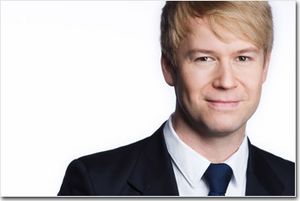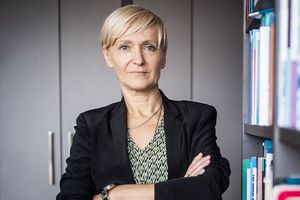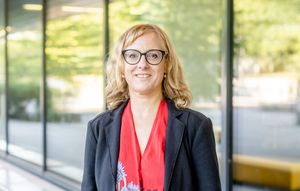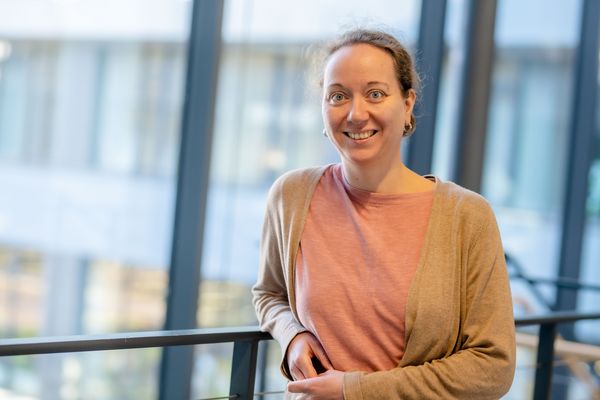- You are here:
- Startseite
- About
- SYLFF-Mikrokolleg
- Become a Sylff fellow
Be part of the Sylff Mikrokolleg
Apply for a research grant for three years
The Tokyo Foundation and RUB Research School invite excellent young researchers to apply for one of three doctoral research grants of the Ryoichi Sasakawa Young Leaders Fellowship Fund (Sylff). Successful applicants will be part of a small interdisciplinary graduate school (Mikrokolleg) and work on the overarching topic of Forced Migration at RUB.
The fellows of the SYLFF Mikrokolleg will work on a variety of aspects related to international forced migration which is understood as a cross-border “migratory movement in which an element of coercion exists, including threats to life and livelihood, whether arising from natural or man-made causes” (International Organisation for Migration). The fellows will
- analyse the root causes of international forced migration in the home countries, including poverty, loss of land, and the persecution due to ethnicity, traditions and religious beliefs,
- evaluate the effectiveness of different international approaches to respond to forced migration in the home countries, such as humanitarian action, foreign aid, institution building and democracy promotion,
- focus on the rights of forced migrants and refugees in different legal orders and on the duties of the involved actors, including the host state, international and regional organisations
The SYLFF Mikrokolleg invites the application of excellent young researchers with a strong interest in research on international forced migration, with a background in law, psychology, sociology and religious studies and with a clear commitment towards cross-disciplinary cooperation.
All fellows become members of RUB Research School which provides an attractive international research and social environment for doctoral researchers and support for their academic and non-academic future career. The fellows will have the possibility to apply for additional funding of RUB Research School PLUS and the Tokyo Foundation, such as for field research and conference organisation.
Find the research perspectives here
Find below the possible research fields for your application.
International Refugee- and Migration Law

The Kolleg also emcompasses a legal perspective. Projects should focus on international, European or comparative public law. These may include questions concerning the rights of forced migrants and refugees in different legal orders as well as the corresponding duties of the different actors involved (e.g. the principle of non-refoulement and other human rights obligations). These actors can be States, international or regional organisations (including the United Nations or the Council of Europe) and even non-governmental organisations or non-State actors, as well as forced migrants and refugees themselves. Projects may also incorporate current legal developments as well as recent public policy proposals in the national or international sphere. Questions relating to the intersection between refugee law and other fields of international law (e.g. environmental law, law of the sea, human rights) or other perspectives (e.g. alternative approaches to international law, refugees’ inclusion in decision-making) are also welcome.
Possible candidates will be supervised by
Prof. Dr. Pierre Thielbörger, M.PP. (Harvard)
Executive Director & Chair for Public Law and Public International Law
IFHV / Juristische Fakultät, Ruhr-Universität Bochum
Massenbergstrasse 9B, D-44787 Bochum
www.ifhv.de
Mental health of individuals exposed to forced migration

Forced migration puts people at a particular risk for mental health problems (MHP). Mental health is crucial to the overall well-being of individuals and societies, as large-scale studies by the EU, WHO and others have shown. It is estimated that more than 50% of the refugees who fled armed conflicts are affected by MHP. Despite the enormous individual burden and long-term economic costs, treatment rates for children and adults with MHP are low and treatment is typically provided only many years after arriving in the host county and the onset of disorders. A major challenge for improving mental health in refugee populations is to identify more efficient ways of providing a low threshold, early and cost-effective interventions for the prevention and treatment of MHP. The project will address research questions regarding the improvement of mental health and well-being in individuals exposed to refugee experiences.
Possible candidates will be supervised by
Prof. Dr. Silvia Schneider
Mental Health Research and Treatment Center (MHRTC)
Ruhr University Bochum (RUB)
Massenbergstraße 9-13
44787 Bochum, Germany
fbz-bochum.de
Urban borderwork / sociology

The rights of refugees, asylum seekers and (forced) migrants are protected and regulated by international and national law as well as by local regulations and practice involving a myriad of state and non-state actors. Over the past years, scholarship in migration and border studies has started to pay closer attention to the everyday borderwork forced migrants encounter in cities today. More restrictive national stances are often opposed to bottom-up solidarities of civil society actors and urban citizens while city policies and administrations have been identified both supportive and more restrictive in their responses. In this vein, local actors construct and contest the border in a variety of ways and negotiate their meaning, turning the city into a space of political struggle around the notions of the border, inclusion, exclusion and belonging. Yet, these urban struggles of borderwork have only started to the subject of empirical research.
The applicant’s research focuses on urban borderwork in Europe, or beyond. It investigates one or several cities in their responses to forced migrants, preferably with a focus on the fields of work and/or health access.
Possible canddiates will be supervised by
Prof. Dr. Margit Fauser
Professor in Sociology – Transnationalization, Migration and Work
Ruhr-University Bochum
Faculty for Social Science
44780 Bochum

In the last decades, the world witnessed an increase in fundamentalist movements in a struggle against postmodern ambiguities and cultural pluralities, linked to ethnic, lifestyle and religious identities. The prominence of such movements and their political relevance varies from country to country. Often, fundamentalist groups not only fight against minorities, but also aim for a purification of the mainstream society. This research projects invites doctoral students to investigate religious fundamentalism as a possible root cause in the context of forced migration. Research will be based on ethnographic fieldwork and participant observation. All regional contexts are welcome.
Possible candidates will be supervised by
Prof. Dr. Dieter Haller
Chair Anthropology
Department of Social Science - Postfach 74
Ruhr-Universität Bochum
Universitätsstr. 150 / Raum GD E 1/243
44780 Bochum - Germany
Website: ttps://www.sowi.rub.de/sozanth/index.html.de
Become a Sylff fellow - Apply for a research grant!
+++ prolonged deadline +++
You feel addressed by one of the research perspectives and would like to work in a cross-disciplinary way. Then use this form and apply for a scholarship by 14 April 2023!
- International Research Marketing
- Governance
- SYLFF-Mikrokolleg
- Research Academy Ruhr
- Map of International Research Activities (MIRA)
- About Open Science
Related links
- RUB Mailinglist on migration (Flucht und Migration)
- Interactive Map made by the Bonn International Center for Conversion (Bicc) in collaboration with the “Institute for Migration Research and Intercultural Studies”.
The Sylff-Mikrokolleg is also listed in this map.
Your contact:

Apply for a research grant
Please find the application form here.
Research perspectives
Find a printable overview of all four research perspectives here.
Information on the application at a glance
Find here a flyer with the most important information of the application.


